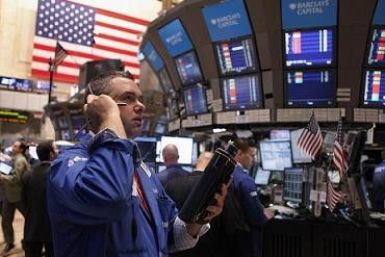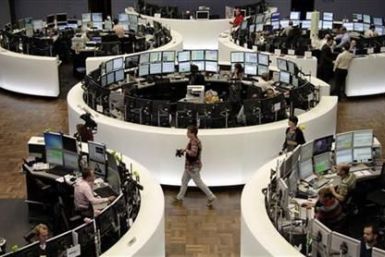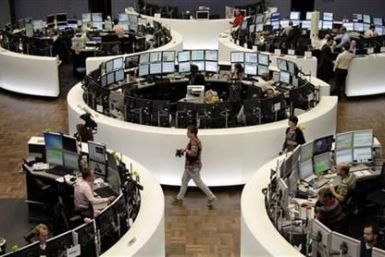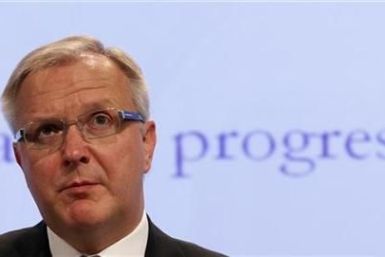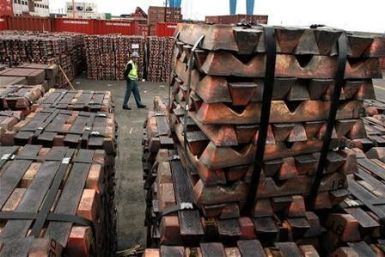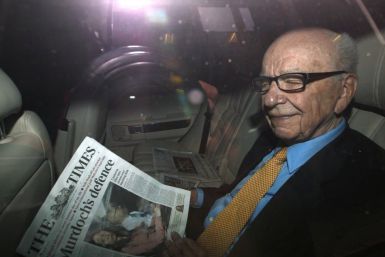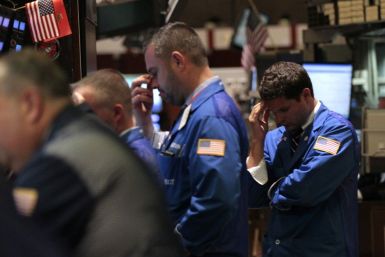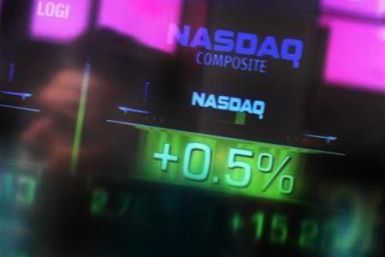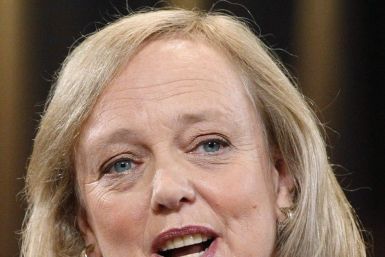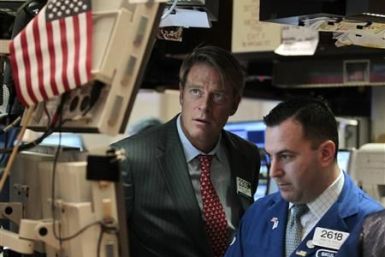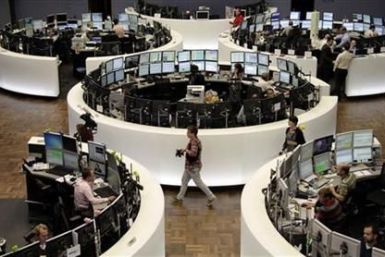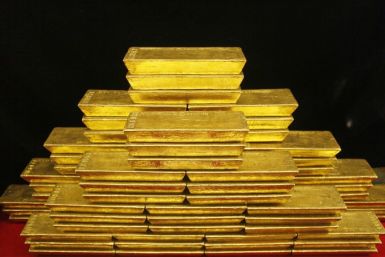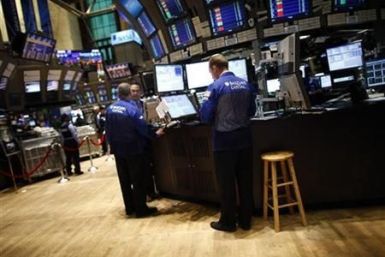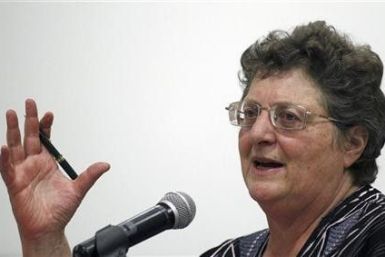Gold prices fell below their 100-day moving average ($1,635) and barely stayed above their 200-day moving average ($1,525) as the decline continued on Monday.
Speculators have piled into the U.S. dollar in the wake of September’s global economic and financial turmoil.
Commodities bounced off lows on Monday after one of the biggest sell-offs since the 2008 financial crisis turned into cautious buying on hopes that Europe would prevent its debt crisis from dragging down the global economy.
Stocks were mixed in volatile trading on Monday as Eurozone officials played down reports of plans to slash Greece's debts and recapitalize European banks to cope with the fallout and after a decline in U.S. home sales.
World stocks fell toward the previous week's 14-month low on Monday and the euro hit a 10-year low against the yen as doubts grew over how effective Europe's latest crisis-battling steps would be in containing the continent's sovereign debt problems.
The top after-market NYSE gainers on Friday are: ING Group, Basic Energy Services, American Eagle Outfitters, Noah Holdings Ltd and Jabil Circuit. The top after-market NYSE losers are: Sunrise Senior Living, American Axle & Manufacturing, Moneygram International, Clorox and Korn/Ferry International.
European stock index futures fell on Monday, following a slump in Asian shares, and the euro slid amid skepticism that Europe's latest efforts to contain its sovereign debt crisis can prevent it from wreaking more damage on the world economy.
Libya's stock market will be ready to resume trading in about one month and hopes to attract more foreign investors, the head of the exchange's Benghazi branch told Reuters on Sunday.
Tanzania's energy regulator on Sunday hiked the prices of gasoline, diesel and kerosene in its latest price review, due to high fuel import costs and a weaker local currency.
The European debt crisis doesn't have to exist because there are a number of feasible solutions to fix the mess.
The European debt crisis has deteriorated to a point where global leaders are publicly urging the Eurozone to get its act together.
The Facebook CEO is richer than Google founders Sergey Brin and Larry Page who have a personal wealth of $16.7 billion each
Gold prices seem to have lost their golden touch in September, falling from a high of $1,920 per ounce to $1,650, a drop of 14 percent.
With European banks tanking and the U.S. growth rate grinding to a halt, how does the average investor protect his assets? By being focused.
In the September 2011 market turmoil, commodities prices are getting hammered. Even gold, which earlier in the year seemed to decouple from everything else and rise higher and higher, has fallen.
Still burdened by an ongoing phone-hacking scandal at its British subsidiaries, Rupert Murdoch's company is aggressively buying back shares in an effort to buttress its share price. Assuming the shares remain at about $17, one analyst estimates News Corp. will have repurchased almost $2.2 billion in shares by as early as Nov. 7.
The Dow Jones Industrial Average (DJIA) is on track to record a weekly decline of more than 800 points -- its worst weekly swoon in two years. But the important question for the typical investor is, 'Where's the Dow likely to head in the next six months?'
When legendary investor Jim Rogers was asked if a recession is coming soon, he said recessions come “because, because, because.”
The top pre-market NASDAQ Stock Market gainers are: SIGA Technologies, Motricity, American Superconductor, Clean Energy Fuels, and Vodafone Group. The top pre-market NASDAQ Stock Market losers are: Pan American Silver, DryShips, Randgold Resources, TriQuint Semiconductor, and ARM Holdings.
European shares fell on Friday after a fresh pledge of support from leading global economies to shore up the financial sector failed to placate markets, leaving them on course for a fifth straight month of losses.
Hewlett Packard Co. (NYSE:HPQ) named Meg Whitman as president and chief executive officer, while Ray Lane has moved from non-executive chairman to executive chairman of the board.
Stock index futures pointed to a higher open on Wall Street on Friday after steep declines the previous session, with futures for the S&P 500, the Dow Jones and the Nasdaq 100 up by between 0.6 and 0.8 percent.
European shares were poised to claw their way off 26-month lows on Friday, but Asian stocks slid on fears of renewed recession in the developed world and as a pledge from the G20 to preserve financial stability left investors largely unimpressed.
Two significant speeches from senior Reserve Bank officials in the past day or so have added to the arguments and view the central bank has about the current state and direction of the Australian economy, which appeared in this week's minutes of the September 6 RBA board meeting.
Gold is not a safe-haven asset, contrary to what some gold bugs believe. Perhaps the clearest recent evidence of is its huge declines since early September in response to the European debt crisis and the struggling U.S. economy.
Hedge fund industry veteran Barton Biggs warned of a global double-dip recession and a 20 percent market drop if the governments do not fix the problem.
The Dow Jones Industrial Average plummeted in Thursday trading, dropping more than 3 percent at certain times after Federal Reserve chairman Ben Bernanke introduced Operation Twist to jump-start the slumping economy.
South Africa's rand briefly hit a new 26-month low against the dollar on Thursday, and bonds trimmed losses, after a central bank statement was largely viewed as dovish but the currency stabilised in late trade after two days of hefty losses.
South Africa's Reserve Bank left its repo rate unchanged on Thursday and struck a dovish note as it balanced its concerns for domestic economic growth with an expected increase in inflation stemming from a sharply weaker rand.
A global banking crisis will erupt unless Europe properly deals with Greece's debt problems, Finance Minister Jim Flaherty said on Wednesday, notably hardening his criticism of European authorities.










